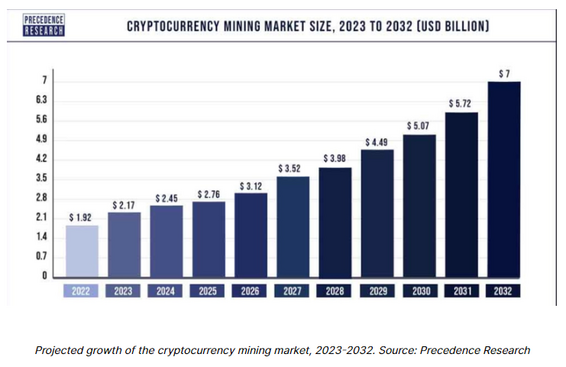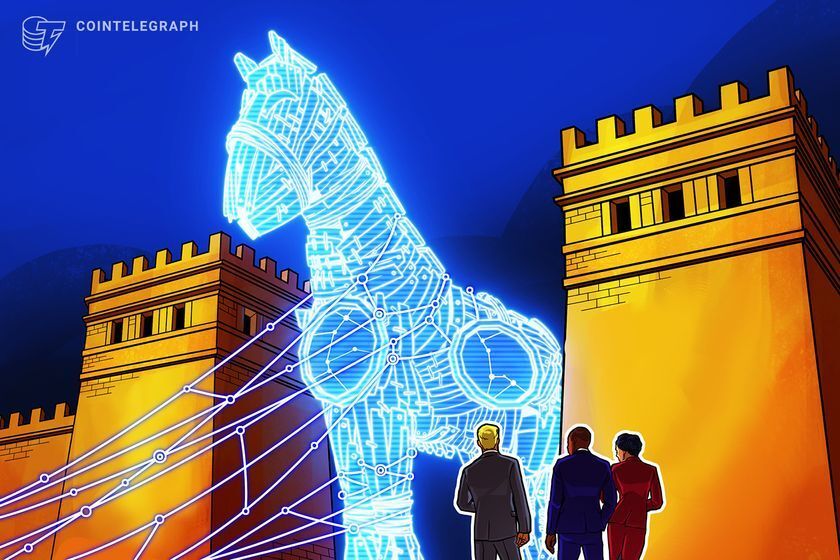However, the rise of Bitcoin also brings with it the need for increased regulatory guardrails, similar to other emerging areas of tech, such as AI. In a globally connected world, where national security interests are thrust into the forefront with each new disruptive technology, risks around critical network and infrastructure vulnerabilities require urgent attention.
The threat of China continues to emerge at the center of these discussions. The U.S. has answered perceived technology threats — from companies like Huawei, TikTok, and Chinese EV manufacturers — with decisive actions. The risk within cryptocurrencies is even more alarming because Bitcoin miners represent a potential silent, sentient hardware layer integrated directly into U.S. energy and telecom infrastructure.
Given the scope of this risk, it is beyond time for regulators to act and ensure Chinese crypto mining technology has zero chance to cripple vital U.S. utility and financial systems.
Bitcoin mining is the process by which new Bitcoins are entered into circulation. It is also the mechanism that secures the network by validating and confirming all transactions to the blockchain, Bitcoin’s underlying public ledger. Miners compete to solve complex mathematical problems; the first to solve the problem gets to add the next block to the blockchain and is rewarded with newly minted Bitcoins and transaction fees.
Requiring substantial computational power and energy, Bitcoin mining is executed through sophisticated mining rigs — high-performance computing systems, powered by advanced semiconductors called ASICs. China dominates the supply of ASICs for Bitcoin mining, supplying 98% of today’s chips, mainly from a few large manufacturers including a company called Bitmain. These chips designed in China are manufactured by TSMC, using their latest and most advanced manufacturing process (3nm).

This is a significant threat to U.S. trade policy and competitiveness, not to mention the risk it poses to national security.
The U.S. has imposed tariffs on Chinese imports stemming from ongoing trade disputes, but some Chinese companies such as Bitmain are undermining the tariffs by setting up subsidiaries or affiliates in other countries, as well as resorting to aggressive dumping and price cutting tactics to significantly limit the adoption of U.S.-based ASIC suppliers. This undercuts not only the tariffs, but also the much-publicized CHIPS Act and its efforts to increase domestic semiconductor manufacturing in America.
As the number of mining facilities in the U.S. continue to rapidly increase (many of which are also Chinese-owned, in addition to being powered by China-manufactured miners), their proximity to critical U.S. infrastructure has activated alarm bells among national security experts. A primary fear is that these facilities could function as Trojan horses, allowing Chinese intelligence agencies to conduct cyber-espionage, potentially targeting sensitive military installations, power grids or communication networks.
Chinese companies, both state-owned and private, operate under a legal framework that requires them to cooperate with China’s intelligence services when requested. This raises the specter of Chinese authorities leveraging their influence within seemingly innocuous crypto mining operations to gather valuable data on U.S. domestic affairs.
Moreover, the technical complexity of crypto mining equipment creates potential backdoor vulnerabilities. Some experts warn that Chinese-manufactured hardware could contain hidden security backdoors in the firmware or software within the miners, allowing covert data transmission or even remote sabotage of critical infrastructure.
We also must consider the degree to which Bitcoin and related blockchains are becoming increasingly critical to the U.S. financial system and economy. It is estimated that 40% of U.S. adults own crypto in some form and the Bitcoin mining industry is projected to grow at a 9% CAGR through 2029. The negative impacts of a major disruption in trading, mining activity or price destabilization will only continue to grow.
Unfortunately, relying upon Chinese suppliers for validation of Bitcoin transactions poses just such a risk to the U.S. financial system. With such a significant presence in the U.S. crypto mining industry, China could seek to influence or even disrupt its operation in times of heightened tension. If China, for example, decided to restrict Bitcoin mining rig imports to the U.S. or otherwise use its influence over Chinese suppliers to manipulate the Bitcoin network, it could disrupt the functioning and stability of Bitcoin and negatively impact U.S. users, investors, and financial institutions.
So, the risks are clear. Now, what can be done?
First, we must call for swift, decisive action from policymakers, including new regulations that better protect U.S. national interests, as well as stronger enforcement of existing policies. This should include implementation of strict cybersecurity protocols and monitoring mechanisms within mining facilities, requiring greater supply chain transparency, conducting more rigorous background checks on Bitcoin mining investors, and establishing cooperative international standards to address cross-border security concerns and prevent regulatory arbitrage.
Second, and perhaps the most critical intervention necessary, is the development of a robust sector for Bitcoin mining technologies in the U.S. It is absolutely urgent for the U.S. to invest in and incentivize U.S. companies to design advanced semiconductors for Bitcoin mining. The CHIPS Act provides an opportunity to jumpstart this effort, and the private sector must follow suit by prioritizing and investing in this as well. Doing so will not only help mitigate security and economic risks, but also ensure a resilient supply chain, promote economic growth, and build long-term technology leadership in this rapidly growing industry.
Lastly, the U.S. must take an aggressive stand by banning Chinese-manufactured mining hardware in the U.S., much like what was done to protect the U.S. communications sector with the ban of Huawei for 5G networks. Additionally, no Chinese owned Bitcoin mining operations should be allowed to exist on U.S. soil. The existing framework that exists for CFIUS should be extended to Bitcoin mining as well.
Authoritarian regimes are often threatened by any form of power distribution. The decentralized nature of Bitcoin is predicated on the idea of open participation and collaboration from around the world, creating a diverse and widespread ecosystem beyond the borders of any single country. However, creating a highly centralized supply bottleneck that runs through a particularly unpredictable country is counter to these values. More importantly, it could also put the longevity of the entire cryptocurrency system into question and concurrently allow a technological Trojan horse controlled by China to enter U.S. soil.












 All while Pfizer—a company with a $2.3 billion criminal fine for fraudulent marketing, bribery, and kickbacks—was given blanket immunity from liability and billions in taxpayer dollars to produce a vaccine in record time with no long-term safety data.
All while Pfizer—a company with a $2.3 billion criminal fine for fraudulent marketing, bribery, and kickbacks—was given blanket immunity from liability and billions in taxpayer dollars to produce a vaccine in record time with no long-term safety data.
























